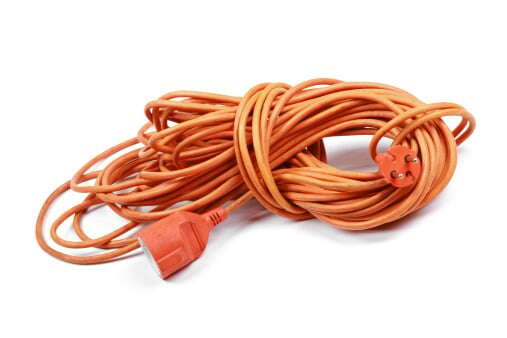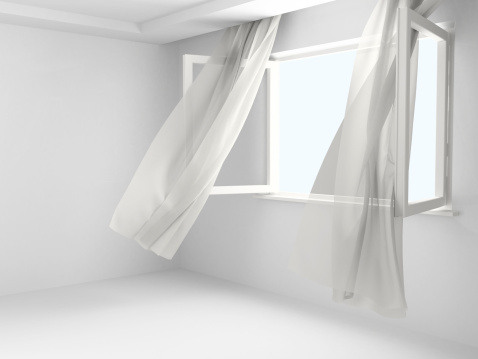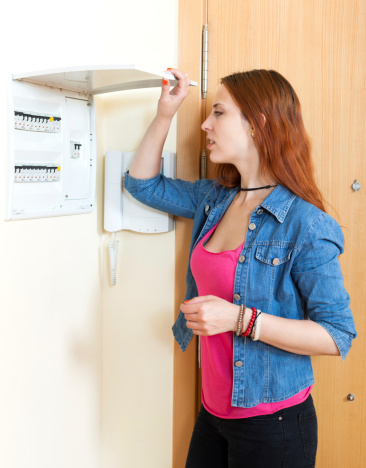 Just about everyone's home has one because just about everyone needs one at some point: an extension cord, that handy instrument that has rescued many lighting and electrical projects and electrical repairs.
Just about everyone's home has one because just about everyone needs one at some point: an extension cord, that handy instrument that has rescued many lighting and electrical projects and electrical repairs.
Now here is an instrument that is as ubiquitous as it is simple to use: plug a device with a shorter cord into an extension cord, plug it into a receptacle and “wa la,” power.
In actuality, it's not quite that simple. The misuse of extension cords is one of the top five instigators of electrical fires in the United States, according to the U.S. Fire Administration. This tells you that there are more “dos” and “don'ts” governing the safe use of extension cords than you might think, which is why Experts In Your Home is compelled to pass along some extension cord safety tips, which are especially relevant when doing electrical repairs.
Important Tips to Remember When Using Extension Cords
For starters, it helps to remember some fundamental but vital tenets about extension cords:
- They are designed to supply a temporary (not permanent) solution. Overusing them can cause the insulation (or jacket) to overheat, which can trigger a fire. In practical terms, you should never use an extension cord to supply power to an appliance, and especially a high wattage one, such as a refrigerator. If the appliance power cord is too short, or has fallen into a state of disrepair, or if you do not have the correct type of outlet for your appliance, contact a licensed Chico electrician so he can provide a long-term and safe solution to the situation.
- Ensure that you are using the correct extension cord for the task at hand. Extension cords are designed (and classified) for either indoor or outdoor use. While it's OK to use a heavier, tougher and more durable outdoor extension cord indoors, it's unsafe to use an extension cord rated for indoor tasks outdoors.
- Check the maximum wattage capacity of an extension cord—and don't exceed it. This information can be found on the tag (usually white) attached to the cord and the appliance.
The National Electrical Code—the “Bible” of the electrical world—issues other rules regarding the safe use of extension cords. Experts In Your Home is pleased to open the book to prevent certain “accidents waiting to happen.” Play it safe with extension cords when you're doing electrical repairs.
Do's & Don'ts of Using Extension Cords When Doing Electrical Repairs
- Do not use an extension cord that is damaged or frayed. Coming into contact with even one exposed wire can give you an electrical shock.
- Do not run extension cords through holes in ceilings, floors or walls, through doorways, windows and other openings or under carpets. In all of these scenarios, the cord could overheat and start a fire.
- Do not affix extension cords (with tape or another type of adhesive) along the top of doorways or window frames and certainly do not nail or staple cords to baseboards or walls.
- Do not string multiple extension cords together. Doing so could reduce the effectiveness of the circuit breakers, which in turn could cause them to overload. Instead, use an extension cord that is long enough for the task at hand.
- Do not use an extension cord to plug in a power strip (to enable it to reach a receptacle). Instead, buy a strip with a longer cord (they're making more of these now) or hire a licensed electrician to install another outlet.
- Do not use an adapter to enable an extension cord with a three-prong plug to fit into a two-prong outlet.
Take the extra precaution of using only those extension cords that are sanctioned by UW (Underwriters Laboratory). You'll breathe easier—and so will your friends at Experts In Your Home.
Related Articles:
DIY Electrical Repairs: How to Repair an Extension Cord Plug
9 Electrical Repairs You Should Take Care of ASAP
To learn more about how to stay safe, download these free electrical safety tips today:








